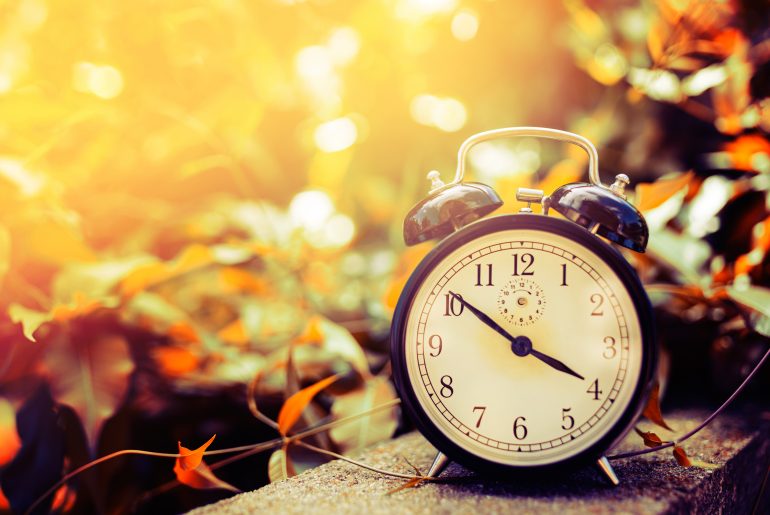Whether you love or hate Daylight Savings Time, you’re probably at least looking forward to getting an extra hour of sleep on Sunday.
The National Sleep Foundation reports that about 20 percent of Americans get less than six hours of sleep. The Centers for Disease Control and Prevention has linked lack of sleep with other issues like vehicle crashes and on-the-job injuries.
While, gaining an hour of sleep in thae fall is typically easier for people than the loss-of-sleep in the spring, it can still mess with your body’s rhythm and cause you to miss your body’s natural shut-eye cues.
Adjusting to time changes is different for everyone, but there are a few tips you can take to help ease into the new schedule.
Start preparing today.
Sometimes, make the hour move in one day is too much, especially for families with kids. Begin pushing your daily routine a little each day. For example, if you normally eat dinner at 6 p.m., move it to 6:15 p.m. for a day or two, then 6:30 for a day or two, then 6:45 p.m., and 7 p.m. by Sunday (which will be the new 6 p.m.). Voila! Be sure to adjust wake up, naps, and bedtimes equally, as well.
Stick with the schedule.
It’s tempting to stay out late the night before (you do have an extra hour to sleep in the next day, technically), but it’s especially important to go to bed at the time you usually would. The extra brightness in the morning may cause you to wake earlier than you planned — meaning you don’t get that extra hour of shuteye after all, and just wind up sleep deprived.
Get outside.
Exposure to natural light, fresh air, and exercise during the day will help you, or your kids, sleep better at night, no matter the time change. This time of year, it can be extra helpful in maintaining schedules.
Soak up the sun.
The end of Daylight Savings Time is actually good for your mood. While it’s no fun to leave the office when it’s already dark outside, the extra light in the morning actually boosts your mood throughout the day. Make the most of it and leave your blinds open at night, so you feel the full effects of the daylight hours. If you’re one of those people who can’t sleep with the slightest bit of light, keep the blinds shut, but open them first thing when you wake.
Reset your devices.
Thankfully, most of our phones, tablets, and computers will do a fine job of resetting their clocks themselves. But don’t forget about other devices you rely on like non-phone alarm close, auto-timed coffee pots, and thermostats. If you have it pre-programed to vary temperature throughout the day, an unexpected increase or decrease in temperature can set your sleeping patterns off. Make sure to update these devices the night before DST.
Also see, Drink cherry juice before bed for a better night’s sleep, study says.




